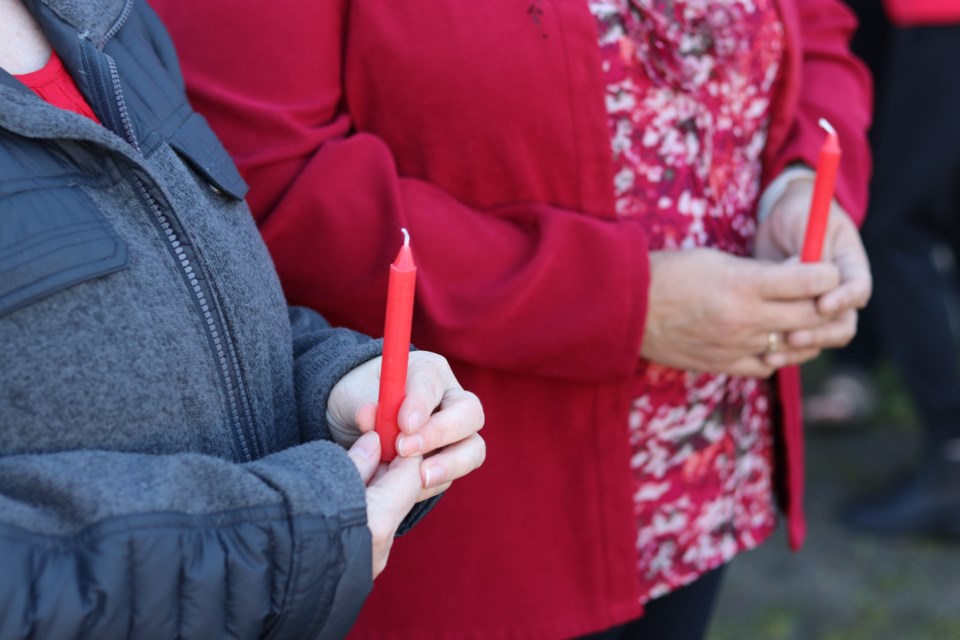There needs to be a central agency to provide support and funding to find missing and murdered Indigenous women and girls, says Crystal Semaganis.
A Plains Cree activist and a Sixties Scoop survivor, Semaganis was among dozens of people who attended a vigil in honour of missing and murdered Indigenous women and girls (MMIWG) and LGBTQ2S+ people held at the Timmins Native Friendship Centre today (Oct. 7).
A red jingle dress was hung on the tree to represent MMIWG. A large black canvas and several smaller canvases with messages of support and calls for action were put on display too.
Semaganis’ speech at the vigil was full of emotion and passion.
Originally from Little Pine First Nation in Treaty 6, Semaganis was adopted into an all-white family in a small town in Saskatchewan. Her siblings were taken into government care and adopted into non-Indigenous families as well.
She was raised outside of her culture but now she's not ashamed of her identity or the colour of her skin, she said.
Semaganis has spent years searching for his missing sister Cleo, who died at the age of 13 in 1978.
No matter how many doors are slammed in your face or how many times someone hangs up, "you never stop looking,” Semaganis said.
She said families of Indigenous MMIWG face a lack of resources when it comes to searching for their missing family members or loved ones. She believes there should be a central organization that supports families in their search.
“Unless you’re generously sponsored by a friendship centre or find a sponsor, there’s no cohesive organization that handles the supports. That’s a huge problem,” she said in an interview.
Families receive support from informal gatherings and Facebook groups but politicians and the private sector need to step up and support Indigenous communities in getting resources, Semaganis said.
In her opening remarks, the friendship centre’s aboriginal healing and wellness co-ordinator Jaylin Renaud said the vigil was held to honour the lives and legacies of MMIWG, create a dialogue and advocate for change and action.



